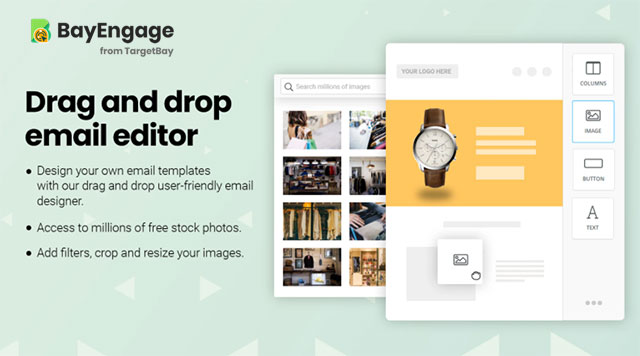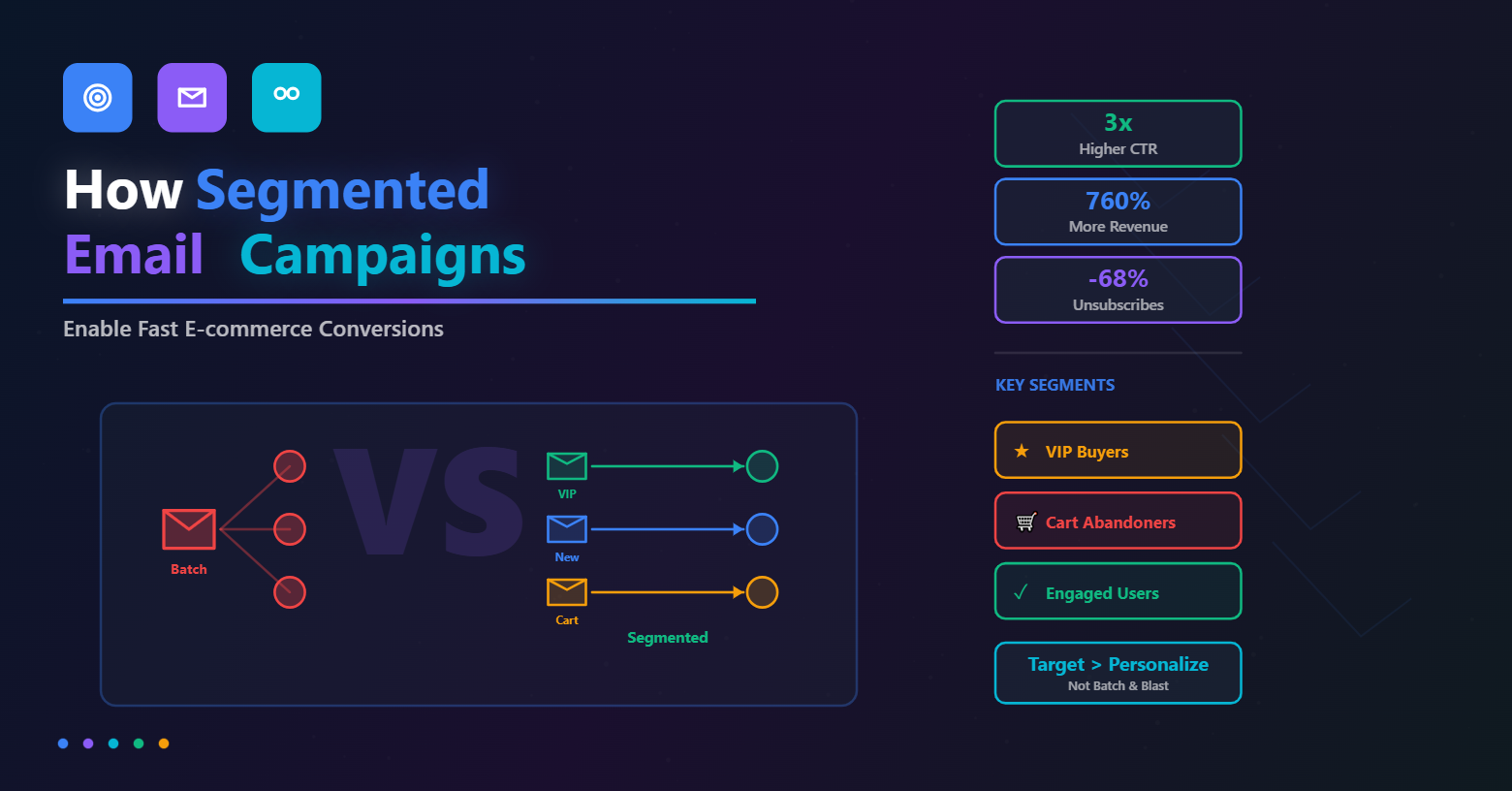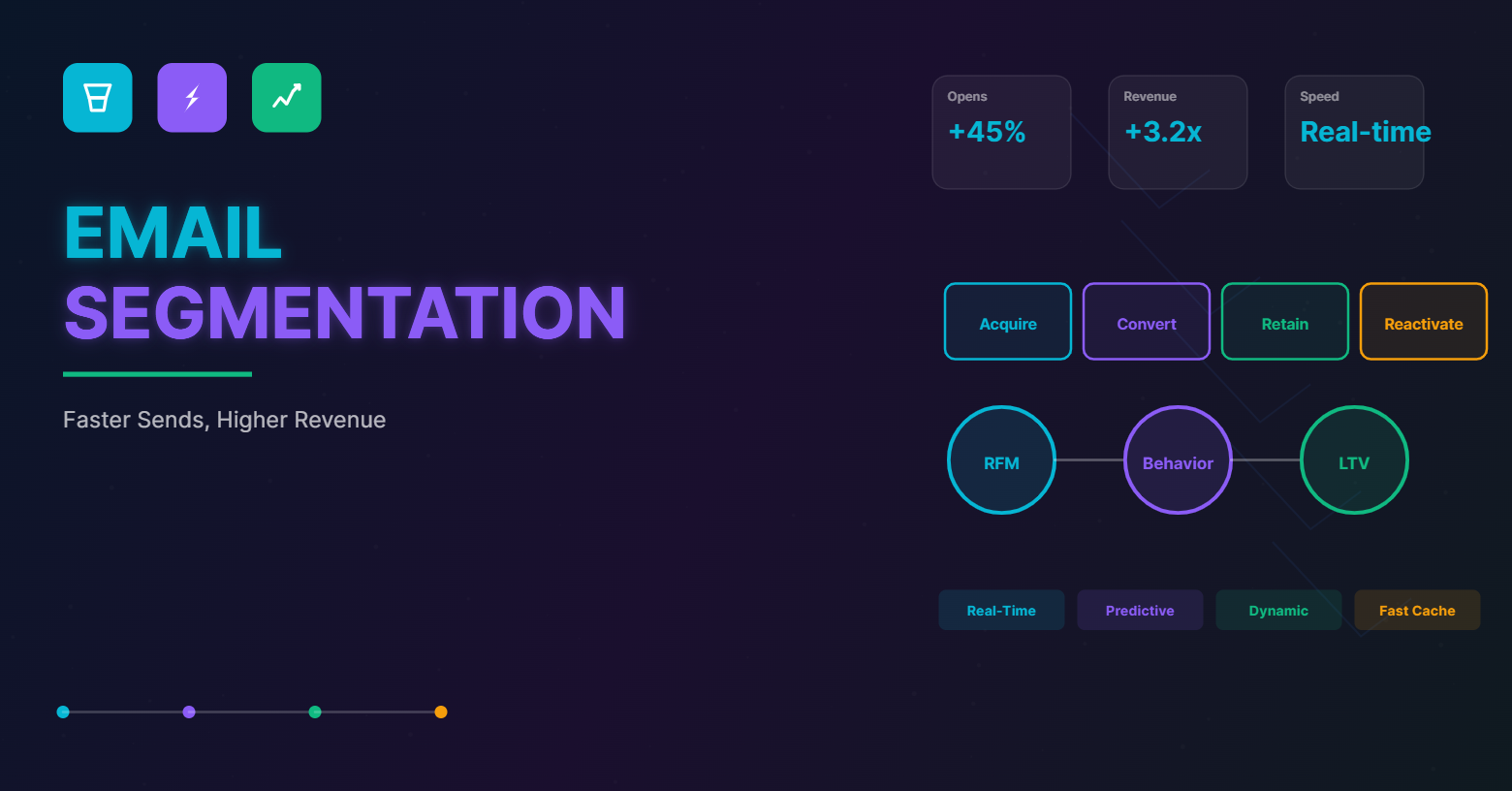Email is one of the most effective ways of communication, be it with your subscribers or your customers. Whether you wish to send them an abandoned cart email or even notify them of an upcoming sale, emails are used everywhere.
But, email marketing is not something you can whip out in a dream. It takes careful planning and execution. And the first step to that is choosing the right Shopify email marketing app for your store.
In today’s fiercely competitive world you cannot just rely on manual techniques to send out emails to your subscribers and customers.
You need an app that will enable you to send the right emails at the right time with the help of smart automations. The email marketing platform for Shopify needs to equip you with powerful features that help you put your strategy to work.
So, what are these different apps that you can use?
When you start an online store, you must have come across many free apps, one of them being Shopify Email. But while Shopify Email is a great option when you are starting out, you will soon grow out of it because of the various limitations it comes with.
What next, then?
That’s exactly what we are going to address in this article.
We are going to introduce you to another tool, a powerful Shopify email marketing app called BayEngage.
We will also pit both BayEngage and Shopify Email against each other so that you know the similarities and differences to make an informed choice for your Shopify store.
BayEngage vs Shopify Email
Both BayEngage and Shopify Email are email marketing apps for Shopify eCommerce stores that help you manage your email streams and strategies as you capture leads, get subscribers, and convert them into customers.
We’ll be covering both in detail.
What is Shopify Email?

Shopify understood early on that if one requires to start a store, they would need to send out emails to connect with subscribers and customers. Be it even for something as simple as an order confirmation email.
Shopify order confirmation email
They also found that not every beginner store has the budget to invest in a full-fledged email marketing app. But they wanted to enable their merchants to have all the basics in place from day one.
Shopify understood that there was a space for an email marketing app, one that takes care of basic emails, and thus launched Shopify Email.
The eCommerce landscape is a crowded one and there is no denying that. Shopify Emails was designed and launched to help businesses take their first step and thrive amidst that crowd, with basic email strategies and designs available for free, albeit with certain limitations.
Hence, Shopify Email was born with the intent to connect the stores with their respective audience, via emails. But up to a certain point.
This is where other email marketing apps like BayEngage come in.
What is BayEngage?

While Shopify Email is a great email app for stores that are just starting out, you will eventually grow out of it due to its limitations. What then?
That’s when a Shopify email marketing app like BayEngage comes into existence which is designed to connect the store to its customer in a timely and efficient manner, with the help of automations and email design features that make the messaging look impressive.
From enabling the Shopify stores to segment their subscribers and customers, to offering pre-designed templates for various emails – welcome, offers, cart recovery and more, BayEngage ensures you have everything to make automated email campaigns successful.
Shopify Email vs BayEngage
Now that you have a basic understanding of the two Shopify email marketing apps, let’s figure out how BayEngage and Shopify Email is different from each other.
#1 Email templates
Both Shopify Email and BayEngage aim to make it easier for the stores to get started with their emails. But, there is still a difference.
Shopify Email enables stores to send all the basic email communication to their customers. So it comes with a basic set of email templates that you can use to design your email communication.
On the other hand, BayEngage offers an array of email templates across various industries as well as use cases.
As your store grows, you’re going to require personalizing the emails beyond the content; this is where having a bigger collection of templates comes into play. It will make your job much easier when it comes to creating professional-looking Shopify newsletter emails.
#2 Customization of templates
Having email templates at hand is nifty. But the next thing is how you customize those templates to make them uniquely yours.
Shopify Email lets you customize their templates by simply pulling the required vectors from your stores, such as the brand elements, product descriptions, prices, the brand logo, and more. Further, you can even customize these email templates by adding buttons, widgets, images, etc to suit your brand image.
BayEngage takes this a step further. It has a drag and drop editor that can be used to customize the email templates. This means that you can customize the entire template as per your needs – much similar to Shopify email, but also view what the changes look like on the side. It makes the entire process of customization more intuitive. Much like Canva; if you’re using it to design your social media posts!
#3 Email automation
Email automation is the process of sending triggered emails at the right time to the right person, without requiring manual intervention every time. The email is sent out when an online shopper completes an action or takes the desired step towards making a purchase. Having Shopify email automation in place has proven to save considerable time, leading the store to focus on its growth.
Both Shopify Email and BayEngage offer email marketing automation features. From welcome emails to cart recovery and more, you can tackle them all easily and never have to worry about a message not going out at the right moment.
#4 A/B testing
As we have already mentioned, Shopify Email is a great option for those stores that are just starting up and need an application that can take care of their basic email requirements.
But, Shopify Email comes with its own set of limitations, one of them being the lack of monitoring and measurement features so that you can figure out which strategy works best for you.
There is no way to conduct A/B testing, which essentially means to send segmented audiences different variations of the same email to find out which variation works best.
That’s where BayEngage differs. BayEngage’s A/B split testing feature helps you test your subject lines, sender’s name, and even the sent time. You will get an insight on which email format of yours did better than the others that will help you optimize your email strategy for better results!
#5 Segmentation
No two subscribers are the same. They visit your website during different sales cycle stages and thus you need to personalize each communication.
Nearly 72% of email recipients say that they respond to personalized emails. Consider this from the point of converting your subscribers. It’s one big statistic.
With Shopify Emails, you can import multiple email lists to the application and then create separate campaigns for them.
On the other hand, with BayEngage, you get an auto-segmentation feature that lets you do the same thing in a much faster and more efficient manner. It helps you increase your open rate by helping you create multiple segments within the app and send targeted campaigns to the recipients.
#6 Result tracking
It is important to track the results of your email marketing so that you can create better strategies to drive more engagement and sales from your subscriber list..
With Shopify Email, you can track results like open and click-through rates, purchases, and products added to the cart. But, that’s where Shopify Emails monitoring activity ends.
If you want clear insights on bounce and conversion rates, CTR, sales, customer engagement, leads, and more, BayEngage is the Shopify email marketing app you need. With BayEngage, you can use various metrics to optimize the next email you send. The more data-driven your strategy is, the better are the results.
#7 Pop-ups and sign-up forms
Shopify Email is an email-only tool. If you want additional features like pop-ups to collect more visitor information, you will have to purchase or install another application alongside.
On the other hand, BayEngage comes preloaded with the feature and is an all-inclusive application that serves all the purposes. You can not only capture the emails of visitors but also send smart messages with the help of automation to your new subscribers!
#8 Access to media files
When you start an online store, chances are that you may not have a bank of the original brand and product pictures to start with. But, email marketing does need images.
When you use the Shopify Email app, you will need to download images from free stock websites and upload them.
However, if you have BayEngage, you will have access to stock images from multiple sources within its dashboard. This means not going on any external medium to look for images when you’re crafting your emails.
#9 Pricing and plans
You can download Shopify Email for free and get 2500 emails per month that you can use without incurring any charges. However, once you exhaust that limit, you will be charged 1 USD for every 1000 emails that you use.
On the other hand, BayEngage has two pricing plans. The first one is a free plan where you get 250 subscribers to whom you can send 2500 emails per month. Not just that, you get access to 250 email templates and over 5000 images, with features like advanced segmentation, A/B testing, and email and chat support.
If you think you need something more, BayEngage has a paid version as well which comes at the cost of 10 USD a month. Under this plan, you get 250-1000 subscribers to whom you can send unlimited emails. It comes with Shopify abandoned cart email, cart emails, advanced segmentation, and additional phone support.
#10 Support
With Shopify Email, if you are stuck somewhere, you will have to go through their extensive Help doc and community forum. Although this gives you a directory of sorts on every possible glitch that you may face while setting or running a Shopify store, it may get a little tiring when you are looking for a quick solution.
On the other hand, BayEngage has a swift system of email or call where a dedicated team sits to solve your queries on the spot.
In the end, it’s all about your requirements. If you are a beginner looking for a simple email app that can address your basic needs, Shopify Email is a great option. But, if you feel you have outgrown its limitations or will soon do so, having a powerful Shopify email marketing app like BayEngage from day one, is a smarter choice.
BayEngage vs Shopify Email: A matter of choice!
When it comes to picking one of the two, both BayEngage and Shopify Email come with their own set of advantages. It depends on the kind of ease you are going for and what stage of setting your Shopify store you are at.
Beginners usually pick Shopify Email and when they outgrow its limits, BayEngage is the type of email marketing app that comes in with its advanced set of features.
If you’re at the stage where you’re making a consistent number of sales and are getting online shoppers to subscribe as well, you should opt for an app like BayEngage.
The reason is that in a competitive space if you have been successful at getting a consumer to trust your brand enough to share their contact details, you need to be equipped with features that will help you put your best foot forward in consistent communication.
BayEngage is exactly the app you need. The Shopify email marketing app was designed keeping in mind the needs of a store that is just starting out or has started to scale.
Don’t believe us? Give it a shot by installing BayEngage on your Shopify store today.




